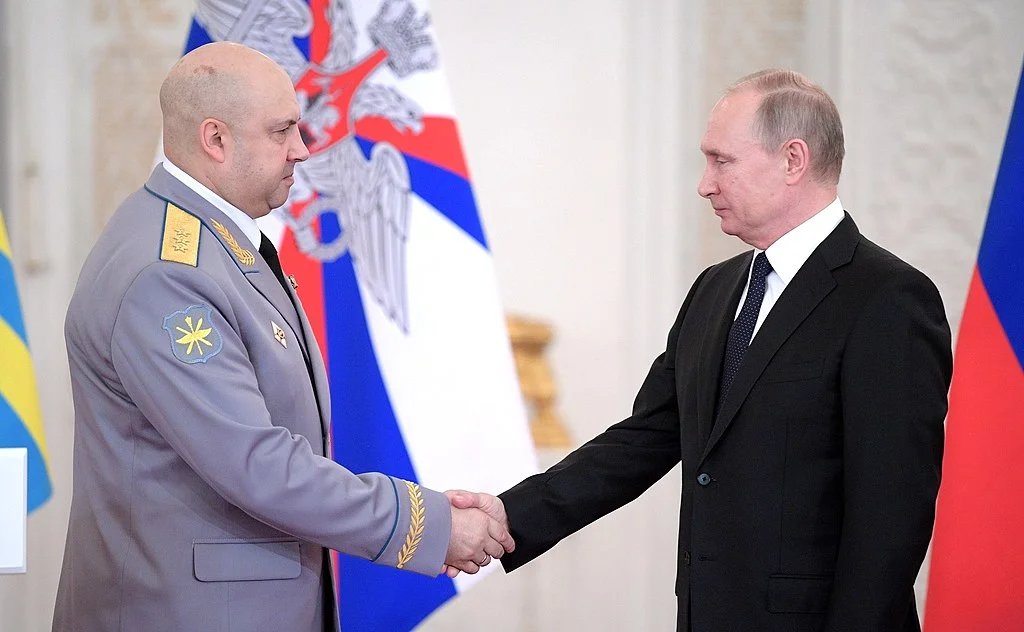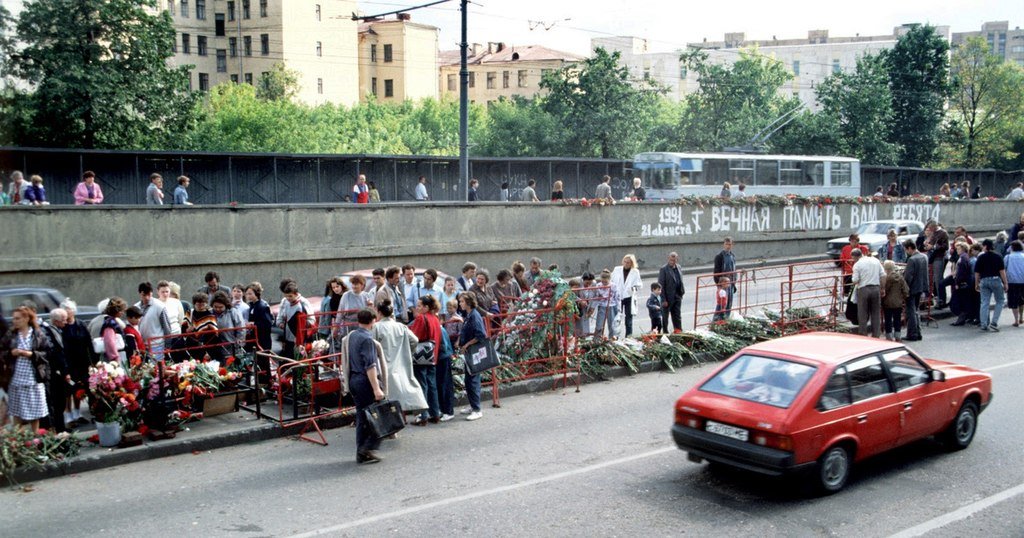Igor Konashenkov, the spokesman for Russia’s Defence ministry, revealed the names of two major military commanders in his recent Telegram post: “The troops of the Central army group, led by Colonel General Aleksandr Lapin, have broken through the well-prepared enemy defence and routed the opponent, blocking the town of Lysychansk from the south and developing the offensive.” The names of the generals behind the Ukraine invasion were kept secret up until now.
Many remembered Vladimir Vysotsky’s WW2-related song called Soldiers of the Central Army Group about the Nazi troops marching through Ukraine in the early days of war. The parallelism is pretty obvious and, to be fair, symbolic.
Strangely enough though, this has distracted people from another paragraph in the same statement: “Meanwhile, the South army group led by Army General Sergey Surovikin completed the rout of the surrounded Ukrainian forces near Hirske.”
This paragraph is actually far more important and symbolic than the previous one.

Sergey Surovikin and Vladimir Putin. Photo: kremlin.ru
***
Surovikin has been Commander-in-Chief of Russia’s Aerospace Forces since 2017. How come he is now leading a land operation in Ukraine then? This is not a joke: Sergey Surovikin is the first non-flying commander of Russia's air forces in history. He spent his entire career as an infantryman and has commanded the Russian military in Syria since March 2017, allegedly helping Russia achieve a turnaround and soon withdraw most of its troops. Let us allow independent experts make their judgement on his role, however, as there were so many “turnarounds” and “withdrawals” in that war.
Surovikin’s career took off rapidly in 2008 after the Russo-Georgian War when he was appointed Director of Operations at Russia’s General Staff. It would appear that his role in Anatoly Serdyukov’s reform of Russia’s army was pretty crucial as Surovikin was responsible for creating the military police before being appointed Head of the Eastern Command in 2017.
Surovikin turned from a battalion commander garrisoned in Tajikistan to commanding the 20th Guards Combined Arms Army with HQ in Voronezh, Central Russia, in only 13 years between 1995 and 2008. A notable step on this path was his leadership over a motor rifle division permanently stationed in Chechnya in 2004-2005.
Thus, Surovikin had an ordinary military career for either a 19th century or a 21st century Russian officer, having served in the Caucasus and Central Asia.
***
There is no surprise Surovikin was filed with charges twice in the 1990s. He was accused of causing death of civilians (charges dropped) and illegally trading firearms (found guilty, court verdict later cancelled due to “exculpatory circumstances”).
There have been many sharp turns in criminal procedures against the Russian military men in the past 30 years.
One such case was the 1994 murder of Dmitry Kholodov, a journalist. All suspects, including General Pavel Grachev, the then-Defence Minister, were acquitted of all charges.
Another case was the disappearance of Khadzhi-Murad Yandiyev, an Ingush insurgent fighter who was wounded and taken captive in February 2000. Aleksandr Baranov, the Russian commander, ordered his men to shoot Yandiyev dead; a CNN cameraman recorded the order. A Russian court ruled later that Baranov’s words were not an official order; the Strasbourg court ruling held Russia responsible for the “disappearance” and presumed murder of Yandiyev. Baranov was not punished; in fact, he was later appointed Head of the North Caucasus Command.
So, what is the point of raking up all these long-forgotten cases? The thing is, Surovikin was a figure in the earliest of such cases.
On 20 August 1991, during the failed Soviet coup d'état attempt, Captain Surovikin, a coup participant, led a rifle battalion and was ordered to send his unit to set up road posts in Moscow’s Garden Ring. The later official court theory stated the following:
“Surovikin’s column was blocked by the protesting crowd in an underpass where they set up barricades. Surovikin demanded that his column be made way for and fired two warning shots with his pistol. Then, he and part of his column broke through the barricades and left the scene. The crowd continued to attack the remaining armoured vehicles; resulting in three young men losing their lives.” The three men in question were Dmitry Komar who died under the tracks of an armoured vehicle, and Ilya Krichevsky and Vladimir Usov who were shot dead.
Surovikin was arrested and spent seven months in custody. He was acquitted of charges eventually, as he “simply followed his order.” Boris Yeltsin, Russia’s first president and the coup’s opponent, surprisingly demanded that “Surovikin be released immediately,” promoting him to Major for “splendidly carrying out his military duty.”
All charges against Surovikin were dropped. The 1991 August Coup case and the 1993 October coup case were closed in February 1994.

Moscow’s Garden Ring. 24 August 1991
***
Although there is very much parallelism between Russia’s invasion of east Ukraine and the Nazi movement in the same area in 1942, when the Red Army suffered a heavy rout near Izyum and Barvinkove and retreated, Sergey Surovikin’s story is no less important.
He was promoted to Army General on 16 August 2021, exactly the 30th Anniversary of the 1991 coup, which is very unlikely to be a coincidence.
It is possible, of course, to consider all armed conflicts in the post-Soviet territory a simple coincidence circuit. Leo Tolstoy’s canonical line from War And Peace, “Die erste Kolonne marschiert, die zweite Kolonne marschiert” (“the first column marches, then the second column marches”) is a mockery of Russia setting up naive military plans on paper and being unable to put them into practice. Believing in coincidences is a very comfortable way of thinking; it allows us to ignore the true meaning of certain events.
It would be far more productive, however, to view all these conflicts and wars as a cause-effect chain, given that the same people took part in all of them. A chain of errors, crimes, and impunity. Impunity is what generates new wars, crimes, and errors.
The same military units, the same officers get involved in the new wars over and over again. Their past experience predetermines their future orders. As they recall the lenient court verdicts in the past, they understand clearly where the red lines are – or if they exist at all.
This understanding, however, calls to action. The chain of impunity needs to be broken. We, Russia’s human rights activists, including Memorial, failed to do so despite the fact we had decades. Sergey Surovikin’s military career success, as well as Russia’s “Central army group” presence in Ukrainian territory is a painful reminder of this.
